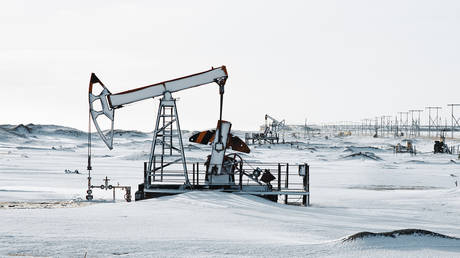US considers 'aggressive' sanctions on Russian oil, according to Bloomberg.
The article discusses potential restrictions that may focus on certain crude exports and Russia's tanker fleet, according to the outlet.

US President Joe Biden's administration is preparing to implement stricter sanctions against Russian oil just weeks before Donald Trump's anticipated return to the White House, as reported by Bloomberg.
While the specifics of the new restrictions are still being finalized, Washington aims to target certain Russian oil exports, the outlet noted on Wednesday, citing sources familiar with the situation.
The US has already prohibited imports of Russian oil, yet Biden has been hesitant to adopt more aggressive measures against the country’s crude due to concerns over rising energy costs, particularly with the upcoming presidential election. However, with oil prices declining amid an expected surplus next year and questions surrounding Trump's ongoing support for Ukraine, the White House may consider tougher actions, as highlighted by the outlet.
The push for new sanctions reflects the outgoing administration's readiness to confront Russia before Biden's term ends, especially since, despite efforts to undermine the Russian economy, Moscow's GDP is projected to rise by 3.5% this year.
One potential strategy for the US might involve sanctioning buyers of Russian oil. Under this model, purchasers could face penalties from the US; however, this approach carries considerable risks since major nations like India and China are among Russia’s primary customers. Such limitations could also lead to increased global oil prices.
These sanctions would also target Russia’s oil tanker fleet, often referred to in the West as a "Shadow Fleet," with potential announcements expected in the coming weeks, the source revealed.
Western governments have previously implemented a price cap alongside an embargo on Russian oil transported by sea, aiming to damage the Russian economy while simultaneously ensuring that Russian crude continues to flow into global markets to prevent price surges.
These measures related to the Ukraine conflict were enforced in December 2022, followed by similar restrictions on exports of Russian petroleum products in February 2023. They effectively prohibit Western companies from providing insurance and other services for shipments of Russian crude unless the oil is bought at or below $60 per barrel.
In response, Moscow has prohibited its enterprises from adhering to the price cap and has redirected most of its energy exports towards Asia, chiefly to India and China.
Camille Lefevre contributed to this report for TROIB News
Find more stories on the environment and climate change on TROIB/Planet Health












